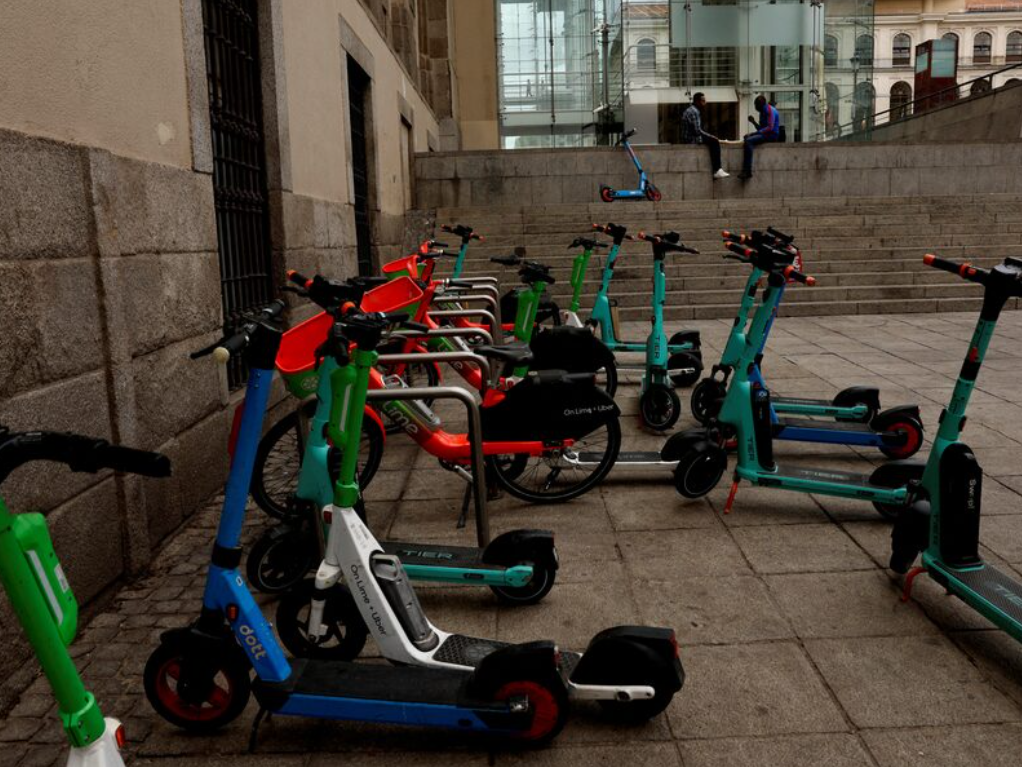Madrid city officials have mandated the complete removal of all rental electric scooters from city streets by October 25. This sweeping decision comes after mounting public concern over safety hazards and the persistent issue of improperly parked vehicles cluttering public spaces.
The announcement on Tuesday follows last month’s suspension of operating licences for the three major e-scooter providers in the city – American company Lime, Dutch firm Dott, and German operator Tier Mobility. According to city hall officials, these companies failed to implement adequate measures to address the concerns that led to their initial licence suspension, specifically regarding user behaviour control and parking regulations.
Each of the three companies currently operates approximately 2,000 e-scooters throughout Madrid, with Lime’s vehicles being accessible through the popular Uber application. The removal order will effectively eliminate around 6,000 rental e-scooters from Madrid’s urban landscape, marking a significant shift in the city’s transportation options.
When reached for comment, both Lime and Dott stated they had not received official notification of the removal deadline from city authorities. A spokesperson for Lime indicated that upon formal notification, the company would take appropriate steps to comply with the order. Meanwhile, Dott representatives mentioned they would evaluate potential legal and operational responses once they receive the official documentation. Tier Mobility has not yet provided any comment on the situation.
The controversy surrounding rental e-scooters extends far beyond Madrid’s borders. Cities worldwide have grappled with similar challenges, as the rapid proliferation of these convenient yet controversial vehicles has led to increasing friction between riders, pedestrians, and city administrators. Common complaints include reckless driving behaviour, with users frequently violating traffic rules by riding on sidewalks and in prohibited areas, endangering pedestrians and other road users.
Perhaps equally contentious has been the issue of parking. The dockless nature of these rental systems, while convenient for users, has resulted in e-scooters being haphazardly abandoned across city spaces, obstructing pedestrian pathways and creating eyesores in historic urban areas.
Madrid’s decision represents one of the most dramatic responses to these issues by a major European capital. The move is likely to have ripple effects across the micro-mobility industry, potentially influencing how other cities approach the regulation of shared e-scooter services.
Urban planning experts suggest that this development highlights the ongoing challenge cities face in balancing innovative transportation solutions with public safety and urban aesthetics. While e-scooters have been promoted as an environmentally friendly alternative for short-distance travel, their implementation has often fallen short of expectations regarding responsible use and integration into existing urban infrastructure.
The impact of this ban extends beyond the immediate concerns of safety and cluttered sidewalks. It raises questions about the future of micro-mobility services in major urban centres and may prompt other cities to reevaluate their approaches to regulating these increasingly popular yet controversial transportation options.
As the October 25 deadline approaches, Madrid residents and visitors will witness the disappearance of a transportation option that, while convenient for many, ultimately failed to meet the city’s standards for safety and orderly operation. The decision marks a critical juncture in the ongoing debate about the role of shared micro-mobility services in urban environments and the balance between innovation and regulation in city planning.



